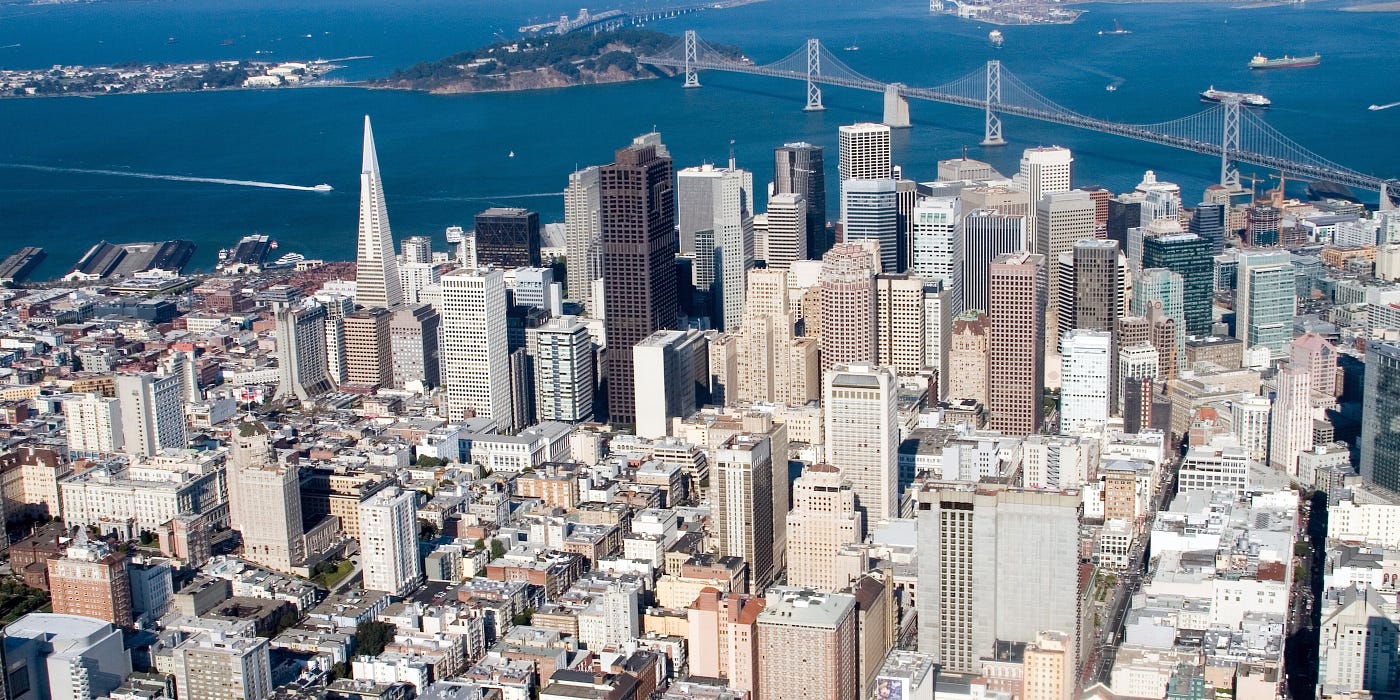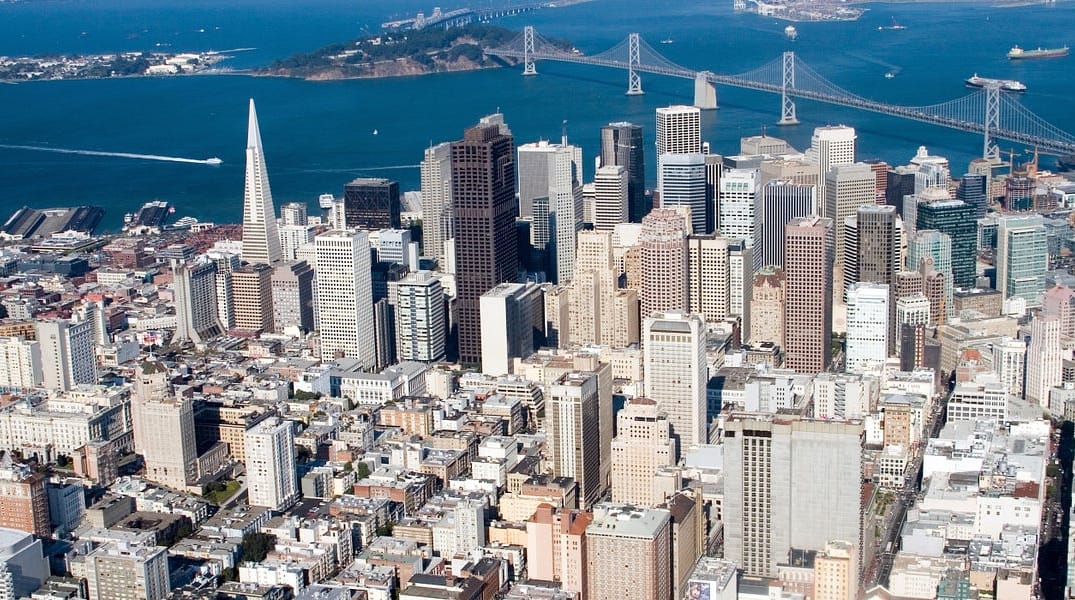
By Steven T. Jones
San Franciscans have traditionally been wary of the wealthy and certainly hesitant to let rich donors buy their way onto the marquees of our prized public facilities. But that attitude is being largely displaced along with the people who held it judging from the muted public responses to recent naming-rights announcements involving the Transbay Terminal and San Francisco General Hospital.
At some point, “Fete the rich” has quietly replaced “Tax the rich” or “Eat the rich” as our mantra toward those who control a large and growing share of our national treasures, leaving San Francisco among a growing number of cash-starved US cities willing to sell its place names to the highest bidders. I’m talking here about facilities owned by the city or built with public money. Private capital is free to take the names of its creations, and it usually does. Hence Davies Symphony Hall is named for the wealthy benefactor who bequeathed the money to build it, and the city’s privately funded baseball stadium is uninspiringly named for deep-pocketed donor AT&T.
Two weeks ago the news broke that a $75 million donation from someone with a net worth of more than $33 billion means our public hospital will soon be known as the Priscilla and Mark Zuckerberg General Hospital and Trauma Center. The fact that taxpayers in the city approved and are paying for the $888 million bond to rebuild General Hospital made the Zuckerberg naming deal seem ridiculous to me, and some of my friends agreed; but many didn’t. They argued that San Francisco needs the money, so I shouldn’t be such an ungrateful hater.
And so it was that the Transbay Joint Powers Authority, which is still trying to come up with hundreds of millions of dollars to bring Caltrain and California high-speed-rail trains into what will open in 2017 as a $4.5 billion bus terminal, last week announced that it is seeking a naming-rights deal for the whole building or parts of it.
Back in 2004, when the city was in an even worse budget crunch than it is today, mayor Gavin Newsom was subjected to an angry popular backlash when he sold the naming rights to beloved Candlestick Park, dubbing it Monster after the cable company in a $6 million, four-year deal.
For those unfamiliar with the Transbay Terminal Replacement Project, this has been an enormous undertaking by governments at the city, state, and federal levels. Much of the funding has come from transferring public land around the terminal to private developers and letting them build 13 new office towers that exceed previous density limits.
That includes what will be, at more than 1,000 feet, the tallest building on the West Coast. It was named Transbay Tower when it was put out to bid and designed by famed architect Renzo Piano. But when Salesforce decided to lease almost half the building, part of that deal meant renaming it Salesforce Tower.
Salesforce CEO Marc Benioff also had the new UCSF children’s hospital in Mission Bay named after him in exchange for a $200 million donation, just as venture capitalist Ron Conway did with another UCSF medical building in Mission Bay, costing him $50 million to be immortalized. Maybe a trio of tech titans gaining naming rights to three public hospitals in San Francisco is just a sign of the times, but it wasn’t always this way.
It’s pretty common to name hospitals around the country after rich donors. Hospitals are right up there with professional sports stadiums when it comes to auctioning off naming rights. But San Franciscans have traditionally bucked even the stadium trend — for example, they preferred to keep the city-owned Candlestick Park named for the point from which it rises.
Back in 2004, when the city was in an even worse budget crunch than it is today, mayor Gavin Newsom was subjected to an angry popular backlash when he sold the naming rights to beloved Candlestick Park, dubbing it Monster after the cable company in a $6 million, four-year deal. But that fall, San Francisco voters overwhelmingly approved Proposition H to ban future naming deals at the stadium (legally, voters couldn’t undo the deal). And when city officials tried to overturn it with Proposition C in 2009, hoping to enter into a new naming deal, voters again rejected it, and the name returned to Candlestick Park.
San Franciscans have also been quick to reject suggestions that the San Francisco Municipal Transportation Agency allow naming rights on any of its public transit facilities or lines, so the new Central Subway line will just be Central Subway, period. Even the new plazas built near Muni lines are sometimes subject to public naming contests, an egalitarian alternative to lauding the wealthy.
Conservative San Diego County has taken the naming trend to new depths, creating a website to sell naming rights for county parks starting as low as $1,000. That’s the best immortality deal around!
Maybe that’s why TJPA executive director Maria Ayerdi-Kaplan seems to be treading lightly with the Transbay Terminal naming auction, telling the San Francisco Chronicle that any would-be corporate namesake will be carefully vetted. As she said, “We are not going to be selling off a public asset without carefully considering who is making the proposal and their significance to the city and to transit.”
Other cities don’t seem to have those same qualms. Philadelphia and New York City have renamed subway stops after corporations that donated millions for the privilege, respectively creating AT&T Station and Barclays Center station. Virginia sold naming rights to 43 roadside rest stops to Geico Insurance for $2 million.
Ayerdi-Kaplan says she’s modeling her naming-rights approach for the Transbay Terminal on what Chicago has been doing with its Millennium Park, affixing the names of rich donors to various features in the park, such as the Jay Pritzker Pavilion (price tag: $15 million) and Crown Fountain (which cost the family of industrialist Lester Crown a cool $10 million). Ironically, both the park’s creator and the local business press still wax poetic about the name of the park itself, a carefully chosen one that isn’t for sale.
Right-wingers seem to be the biggest advocates of auctioning off naming rights, which isn’t surprising given how they lionize the rich. Conservative San Diego County has taken the naming trend to new depths, creating a website to sell naming rights for county parks starting as low as $1,000. That’s the best immortality deal around!
When a Republican legislator in Washington state introduced legislation in 2013 to allow naming deals for various public facilities — she said her impetus was to cover a $45 million annual deficit for operations of the Tacoma Narrows Bridge — the idea ran into opposition centered in left-leaning Seattle. The year before, the state legislatures in New Hampshire and Florida also considered and rejected legislation to allow naming-rights deals for public facilities.
Public officials in San Francisco are increasingly keen on the idea of renaming public assets to raise money from the rich, apparently trying to get back some of the millions it has lost through its 2011 Twitter tax break and 2012 business-tax-reform measure.
Public officials in San Francisco are increasingly keen on the idea of renaming public assets to raise money from the rich, apparently trying to get back some of the millions it has lost through its 2011 Twitter tax break and 2012 business-tax-reform measure, which slashed tax rates for the technology companies that have come to dominate the local economy.
Who knows where they’ll draw the line, but scenic San Francisco has plenty of potentially lucrative opportunities to make some serious dough here, enough to help agencies such as the Golden Gate Bridge, Highway and Transportation District, which faces big budget deficits almost every year.
Just think about how much money we could make with the McDonald’s Golden Gate (or maybe Arches, if the price is right) Bridge, Long John Silver’s Fisherman Wharf, Coit Carpet Cleaning Tower, Ron Conway’s City Hall, Pabst Park (renaming Dolores Park for that swill the hipsters drink in it), and, my personal favorite, the eBay Bridge.
Hopefully, I can get a cut of the action on some of these ideas — you know, like a finder’s fee. Or maybe just a bench on the Twitter Transbay Terminal’s rooftop park with my name on it.
Got a tip for The Bold Italic? Email tips@thebolditalic.com.
Photo from Thinkstock







